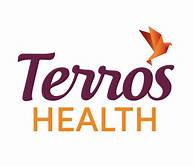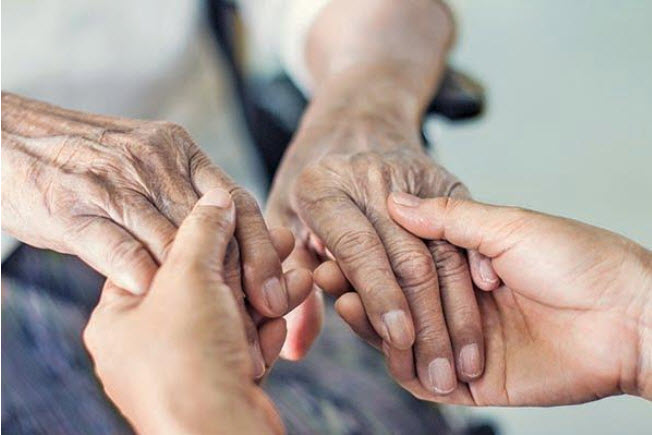Every year, tens of thousands of individuals are released from jail or prison to face a new reality: life after incarceration. As they begin the transition back into society, they...
Every year, tens of thousands of individuals are released from jail or prison to face a new reality: life after incarceration. As they begin the transition back into society, they do so with trepidation and frustration, navigating where they will live, how they will eat and what they will do to make ends meet.
But something most of them don’t think about, or cannot prioritize, is the status of their health. This comes despite the fact that a large percentage of them have physical and behavioral health challenges.Such is the case at Maricopa County’s Black Canyon Adult Probation Center, where about 57 percent of the approximately 3,200 probationers have identified needs for mental health and substance abuse services, according to data from the county’s Adult Probation Department.
“These are individuals who need our help,” said Peggy Chase, president and CEO of Terros Health, a non-profit organization that has been helping Arizonans facing mental health and physical health challenges on their recovery journeys for 50 years.

Barbara Broderick, chief probation officer for Maricopa County Adult Probation, shared Chase’s concern, noting that when these individuals have a health problem, about 40 percent of them end up in the hospital Emergency Department or at an urgent care center.
This dilemma got Broderick and Chase wondering how they could empower probationers to think differently about their support system. In 2017, when a new grant opportunity was made available by Arizona Health Care Cost Containment System (AHCCCS), the Target Investments Program, which sought to incentivize eligible providers that meet certain benchmarks for integrating and coordinating physical and behavioral care for Medicaid beneficiaries, led Broderick and Chase’s organizations to a novel idea: to open integrated health centers in high needs areas of the Valley. The four co-located centers are funded by a five-year TIP grant in an innovative program to improve probationers’ access to health care and ultimately reduce recidivism.
Merging justice and health care in this way is a game-changer, Broderick said, “because it enables us to open new doors for these individuals, particularly when it comes to the treatment of substance abuse.
“Providing a warm hand-off from a probation officer to a care team will help those for whom health care may not be a priority,” she added. Terros Health has a long-standing partnership with Broderick and her team. The organization also has extensive experience working with the justice system to expand treatment, community education and prevention efforts through its Maverick House, a residential substance abuse treatment center, and Bridging the Gap Offender Re-Entry program, which helps inmates re-engage in the community and reduce returns to prison.
But this program is different, because it enables Terros Health to coordinate probationers’ physical and mental health needs under one roof, Chase said. “We want probationers to feel welcome and know that their health and well-being is valued. Partnering with Maricopa County Adult Probation in this way gives them a new path to success, as part of our compelling purpose to Inspire Change for Life.”
Staffing is an important consideration: The co-located health centers are run by a Terros Health nurse practitioner and registered nurse case manager who are specially trained in working with the probation population, along with two counselors, a peer community health worker and a project manager. Before receiving services, probationers undergo a comprehensive physical and mental health examination that includes BMI, heart function, diabetes, anxiety and depression screenings. Results from the screenings, along with an evaluation of the individuals’ social determinants of health, are used to inform a customized treatment plan.
And the staff care about the patients and their unique needs.
Curtis Bass, the program’s family nurse practitioner, said he enjoys the opportunity to offer this population a helping hand with their physical and behavioral health issues. “They have enough on their plates readjusting to life outside the wire as it is. Offering some stability and predictability in their health care is personally rewarding.” Having a peer community health worker involved in the program means that patients get help from someone with lived experience. Charlie Ottelin works closely with probationers to help identify needs and get access to resources. As he explained, “My clients are trying to get back a life, and have challenges with big things like homelessness, getting a job, getting an ID. Some have serious illnesses that they acquired while in jail, and I get to see them getting the medical help they need.
“I tell them, ‘I am here to walk next to you, and to make sure you can walk on your own.’ It’s my job to show them the path through the maze of addiction, jail, and life in general and see the treasure that it truly is because life is a learning experience.” Ottelin admits the program has a special place in his heart. “I am 10 years clean and sober, and I know what it’s like for my clients because I’ve been where they are now.”
Ultimately, the TIP Justice Clinics are doing just what Jami Synder, director of AHCCCS and her team intended: to reduce fragmentation between acute and behavioral health care, improve efficiencies in service delivery through enhanced provider integration, and make a positive, measurable difference in the health of those with physical and behavioral health needs.
“Ultimately, we want the TIP Justice Clinics to become a model of care that works in Arizona and that could also be adopted in other parts of the nation,” she said.
Chase agrees, but she has an even bigger goal.“It’s another step in helping probationers rebuild their lives,” she said.
Fast Facts: Probationers and Health Care
The Problem:
Historically, probationers have experienced inequities with health coverage and care in their communities. Subsequently, they have a higher disease burden than the general population and lack health insurance at the time of release from incarceration. This drives up costs and leads to poor health outcomes, according to national research.
More Facts:
The probation population has a high incidence of behavioral health conditions such as anxiety, depression and trauma, along with infectious diseases, Hepatitis C, high blood pressure, diabetes and other physical ailments.
Studies have shown that the probation population is four times more likely than the general population to have a substance use disorder and long-term drug use exacerbates physical health problems and decreases a probationer’s chance of receiving care.
A large percentage of probationers experience social determinants of health. As such, getting health care after release from incarceration is a low priority, as these individuals are focused on seeking housing, employment and transportation.
Because health care is not always a priority for this population, they are likely to use a hospital Emergency Department or urgent care center when they need care.
The Solution:
Terros Health and Maricopa County Adult Probation have opened four co-located, integrated health care centers in high-needs areas of the Valley to improve probationers’ access to care, reduce recidivism and enhance the safety and well-being of our neighborhoods. The goal is to combine the strengths of justice and health to increase participation in health services.
How it Works:
Maricopa County Adult Probation officers work hand-in-hand with Terros Health to motivate probationers for whom health care may not be a priority. Terros Health is staffed with a care team specially trained in working with the probation population.
Before receiving services, probationers undergo a comprehensive physical and mental health examination that includes BMI, heart function, diabetes, anxiety and depression screenings. Results from the screenings, along with an evaluation of the individuals’ social determinants of health, are used to inform a customized treatment plan.
Care includes treatment for anxiety, depression and other behavioral health disorders, along with diabetes, high blood pressure and other chronic physical conditions. Terros Health also employs its comprehensive Medication-Assisted Treatment program, using FDA-approved medications, in combination with individual and family counseling and therapy, to treat probationers with an addiction to opioids, alcohol, nicotine and other drugs.
For More Information:
www.terroshealth.org
http://www.ahcccs.org
https://superiorcourt.maricopa.gov/apd




























